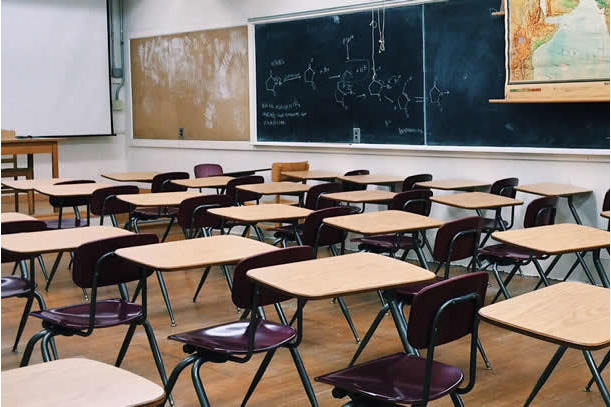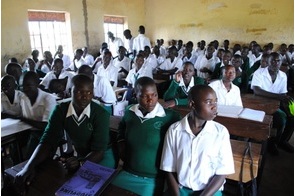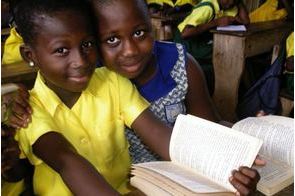Students not getting remedial programmes post-Covid-19 school closures

Summary
In 2020, schools worldwide were fully closed across all four education levels for 79 teaching days on average.
About one in three countries where schools are or have been closed are not yet implementing remedial programmes post-COVID-19 school closures, according to a UNESCO, UNICEF, World Bank and OECD global “Survey on National Education Responses to COVID-19 School Closures”. At the same time, only one-third of countries are taking steps to measure learning losses in primary and lower second levels – mostly among high-income countries.
“Measuring learning loss is a critical first step towards mitigating its consequences,” said Silvia Montoya, Director, UNESCO Institute for Statistics. “It is vital that countries invest in assessing the magnitude of such losses to implement the appropriate remedial measures.”
Fewer than a third of low- and middle-income countries reported that all students had returned to in-person schooling, heightening their risk of learning loss and drop-out. However, the majority of countries reported using at least one form of outreach to encourage students’ return to school, including community engagement, school-based tracking, modification to water, sanitation and hygiene services, financial incentives and review of access policies.
“Remedial instruction is vital to help those children who have missed out on school to get back on track and reduce long-term learning losses. This requires an urgent effort to measure students’ learning levels today and collect good quality data to inform classroom practices, as envisioned under the UNICEF, UNESCO, and World Bank's Learning Data Compact,” stressed Jaime Saavedra, Global Director for Education, World Bank.
The survey documents how countries are monitoring and mitigating learning losses, addressing the challenge of reopening schools and deploying distance learning strategies. In total, 142 countries responded to the survey that covers the period from February to May 2021 and spans pre-primary, primary, lower secondary and upper secondary.
UNICEF’s Global Chief of Education, Robert Jenkins, said that remote learning has been a lifeline for many children around the world during school closures. But for the most vulnerable, even this was out of reach. He stressed that it is urgent that countries get every child back into the classroom now, adding that reopening better means implementing remedial programmes to help students get back on track, and ensuring the prioritization of girls and vulnerable children.
Some of the key findings of the survey include that countries have responded with a variety of measures to mitigate potential learning losses from school closures: around 40 per cent of countries extended the academic year and a similar proportion of countries prioritized certain curriculum areas. However, more than half of the countries reported that no adjustments have been or will be made.
Also, many countries improved health and safety standards at examination centres, however, 28 per cent of countries cancelled examinations in lower secondary and 18 per cent of countries did so in upper secondary education.
Reviewing or revising access policies was uncommon, especially for girls – a cause for concern as adolescent girls are at the highest risk of not returning to school in low- and lower-middle-income countries.
Also, the survey finds that low-income countries are lagging in the implementation of even the most basic measures to ensure a return to school. For instance, only less than 10 per cent reported having sufficient soap, clean water, sanitation and hygiene facilities and masks, compared to 96 per cent of high-income countries.
The Survey also sheds light on the deployment and effectiveness of distance learning and related support more than one year into the pandemic. Most countries took multiple actions to provide remote learning: Radio and TV broadcasts were more popular among low-income countries, while high-income countries provided online learning platforms. However, over a third of low- and lower-middle-income countries reported that less than half of primary school students were reached.
According to the statement made available to Financial Nigeria by UNESCO, it said that ensuring take-up and engagement requires remote learning strategies suited to the context, parental engagement, support from and to teachers, and ensuring girls and other marginalized children are not left behind. It also requires generating rigorous data on the effectiveness of remote learning. While 73 per cent of countries assessed the effectiveness of at least one distance learning strategy, there is still a need for better evidence on effectiveness in the most difficult contexts.
“There is a critical need to produce more and better evidence on remote learning effectiveness, particularly in the most difficult contexts, and to support the development of digital learning policies,” said Andreas Schleicher, Director, OECD Education and Skills.
In 2020, schools worldwide were fully closed across all four education levels for 79 teaching days on average, representing roughly 40 per cent of total instructional days averaged across OECD and G20 countries. The figures ranged from 53 days in high-income countries to 115 days in lower-middle-income countries.
Demand for funds is rising, in competition with other sectors, while governments’ revenues are falling. Nevertheless, 49 per cent of countries increased their education budget in 2020 relative to 2019, while 43 per cent maintained their budget constant. Funding is set to increase in 2021, as more than 60 per cent of countries plan to increase their education budget compared to 2020.
These findings reinforce the importance of reopening schools, remedial learning and more effective remote learning systems that can better withstand future crises and reach all students. Moreover, it shows that the measurement of learning losses due to COVID-19 related to school closures is a critical effort for most countries and development partners, highlighted by the recent partnership of UNESCO, UNICEF and the World Bank around the Learning Data Compact.
The survey is in line with the Mission: Recovering Education 2021 by which the World Bank, UNESCO, and UNICEF are partnering to support countries as they take all actions possible to plan, prioritize, and ensure that all learners are back in school; that schools take all measures to reopen safely; that students receive effective remedial learning and comprehensive services to help recover learning losses and improve overall welfare; and their teachers are prepared and supported to meet their learning needs.
Related
-
Consortium plans $600mn investment in Africa’s education sector
The new company will be part of the SABIS network, which operates schools around the world with nearly 65,000 students.
-
Why Nigeria is lacking expertise
In some universities in Nigeria, students in the sciences have never handled a micropipette to work with it.
-
How books can defuse the population bomb in developing countries
Countries need to acknowledge family planning as a human right and empower women to recognise their right in determining ...










